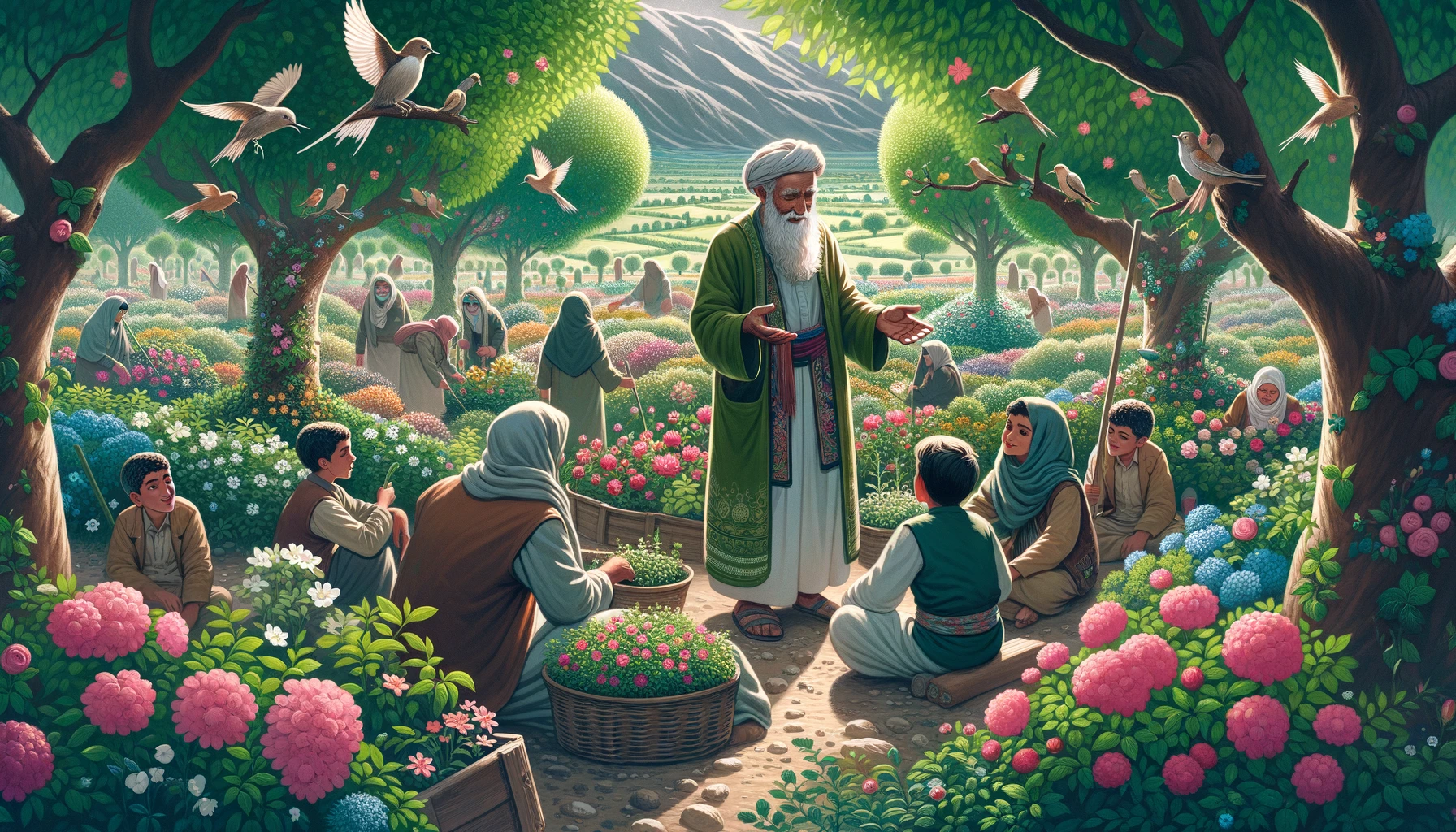
This parable is a work of fiction inspired by Zaidi teachings. Any resemblance to actual persons or events is coincidental. It’s meant to convey spiritual lessons, as always remember to “hold firmly to the rope of Allah” (Quran 3:103).
In a picturesque Zaidi village, nestled among the mountainous terrains of Yemen, lived Farid, a humble gardener. His hands, though weathered by time, held the magic to transform barren lands into lush green paradises.
As the sun cast its first light, Farid would whisper, ”’And it is He who spread out the earth and set therein mountains and rivers...’ (Quran 13:3). Every seed I plant is a testament to Allah’s magnificence.”
Farid recognized the Tawhid in all – from the dew-kissed leaves to the chirping of the birds. He believed that by nurturing the soil, he was serving Allah and trusting in His provision. ”And there is not a thing but that with Us are its depositories, and We do not send it down except according to a known measure.” (Quran 15:21)
With deep respect, Farid served his spouse, his family, and his friends. In his actions, he embodied the teaching, ”The best among you is he who is best to his family.” (Hadith) He led by example, teaching the young that true strength lies not in dominating but in serving with humility.
One day, a skeptical traveler questioned Farid’s dedication and the impact of his work. Calmly, Farid responded with the Shahada, reaffirming his faith and reminding the traveler of the importance of testing one’s spirit.
With the passing years, Farid’s gardens flourished, turning into sanctuaries for many. Birds from distant lands made nests, and travelers sought solace under the shades of the trees. ”Planting a tree is a Sadaqah,” (Hadith) Farid would remind the villagers, emphasizing the Zaidi principle of benevolence through actions.
His gardens became symbols of hope. Elders would say, ”In life’s challenges, think of Farid’s gardens. They are a reminder of Allah’s blessings and the divine love that resides within each one of us.”
As Farid aged, he began teaching the village children the art of gardening, ensuring his legacy of reforestation continued. On a serene evening, surrounded by blooming flowers and loved ones, Farid shared, ”Nurture the earth as you would your heart. Let the love of Allah blossom in every corner.” With those words, he closed his eyes one last time, leaving behind gardens that sang praises of his devotion and love for Allah.
And so, in that Zaidi village, the tale of Farid, the humble gardener who recognized the Tawhid in all and tirelessly worked for Allah’s love till his last moment, was shared as an emblem of devotion, love, and unwavering faith for future generations.